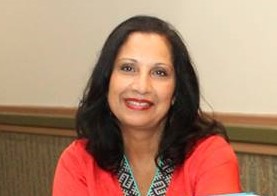Human beings are gifted with intelligence, compassion and complex communications skills. We are capable of conversations that are nourishing for the soul, that join hearts, that make us learn and reflect and that are just plain fun. Of course, we often underutilize these advanced communications skills. It could be trivia that is being discussed or the most serious of matters, e.g., politics, but somehow, our egos hijack the conversation; we stop communicating and start advocating or persuading. It could be with family, friends or total strangers, e.g., in an interfaith group setting.
We want to be right, and get attached to our viewpoints to the point where any disagreement is seen as an affront. It is a fascinating phenomenon. I often lament the lack of peaceful conversations, and yet I – as someone who is trained in this- will also defend my point of view when challenged! So, it is basic human nature we are struggling with. It is natural to feel self-righteous, get defensive, to persuade, to dominate. And yet, conversations can be a channel for love, peace and harmony, if we only were willing to control our egos a bit. And that is what Sufism is all about- subserving our own ego and serving others to serve Allah. It is an awareness that requires constant vigilance and renewal as Baba Yurdaer of Jerrahi Mosque reminds us.
In my non-profit work, I call them “deliberate conversations”. Deliberate means we go in with an intention to connect, to heal and to build peace. And we know that we have to struggle with our automatic inner reactions and put them aside when we have that intention. We have to follow certain rules and etiquette. Some basic rules are:
- Intention- make an intention to promote harmony, to enhance relationships and to include all in the conversation. Our intentions can be very powerful inner guides and help us build our awareness.
- Airtime- this is a very important, and often violated norm: do not hog the conversation “airtime” and give everyone a chance to speak and be heard. This is part of the value of inclusion, which is so important to human respect and dignity.
- Attention- pay full attention to whoever is speaking, and ask questions to be sure you have understood them before you share your own views or opinions. Suspend your own opinions like laundry on a clothesline as David Bohm (a philosopher, physicist who wrote and lectured on Dialogue) said.
- Empathy- understand and resonate with the emotions underneath the words which is so validating for the speaker.
- Speaking- speak in specifics not generalities or broad-brush opinions, and manage your tone so as not to offend others.
Like an onion, we can peel away at layers and get back to the basic relationship if we make the intention to heal and to respect all. I love this work so much, even as I struggle with its implementation. But that’s the gift of living- we learn while doing, and then reflect on how much farther we have to go. I am also encouraged by how many groups are facilitating dialogue across the different divides plaguing us here in the USA and elsewhere. An amazing example of healing racial hate was covered recently in the NY Times (https://www.nytimes.com/2021/06/26/opinion/racism-politics-daryl-davis.html). I applaud them as they generously and often courageously (as in post-war zones) give their time towards healing humanity and promoting harmony Inshallah.

Be First to Comment